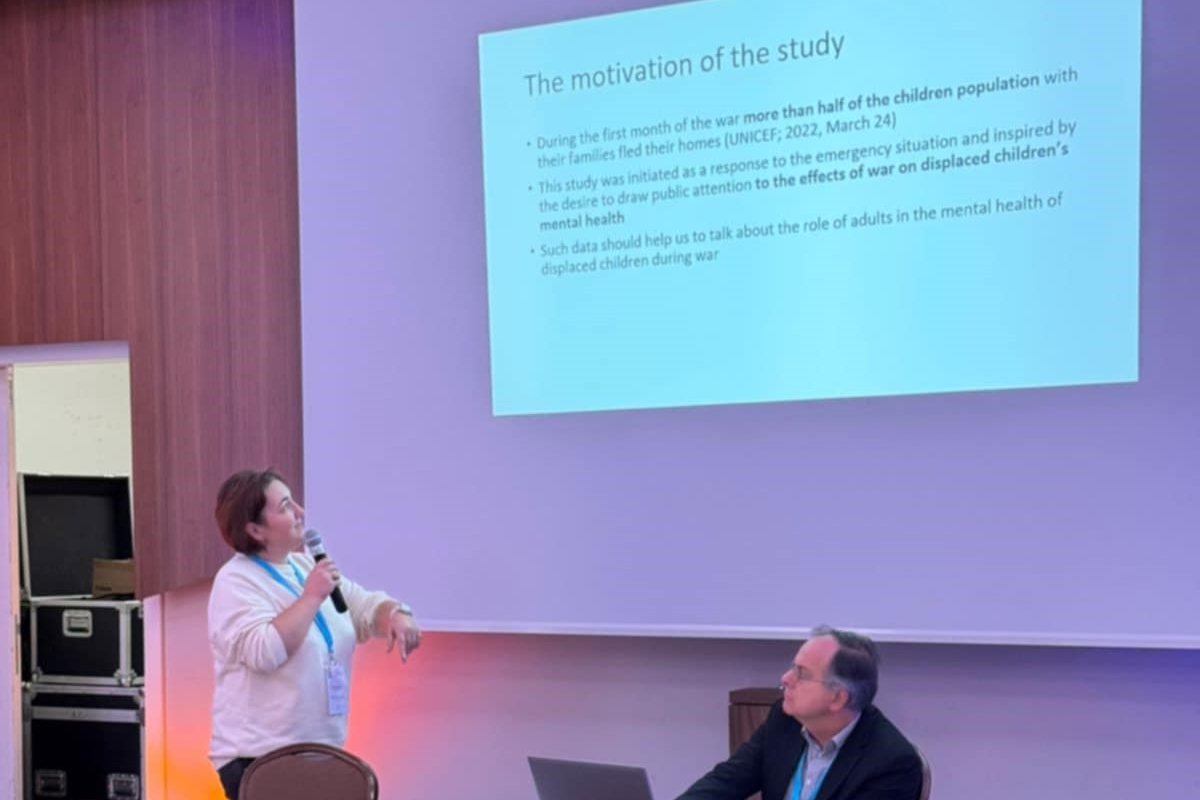At an international congress in Croatia, they heard about a study supported by the UCU Child Dignity Center
On October 23-25, the 35th International FICE World Congress was held in Split, Croatia. Anastasia Shyroka, a psychologist, associate professor of psychology and psychotherapy at the Faculty of Health Sciences of UCU, made a presentation at the congress. She spoke about the results of a study of the emotional experience of parents and the mental health of children who were forced to leave their homes during the first months of the war in Ukraine. The Center for the Dignity of the Child at UCU was a partner in the study.
FICE International (Fédération Internationale des Communautés Educateurs) is a global network of organizations and professionals in the field of child and youth care and out-of-school care from more than 45 countries. The 35th Congress was dedicated to the topic: “Quality of Child and Youth Care: Investing in the Future”.
Anastasiia Shyroka attended the congress thanks to the invitation and support of the Ukrainian Education Platform. The psychologist made a presentation “Calm mom - calm child? How Caregivers' Emotional Regulation Affected Children's Mental Health in the Context of Displacement in the First Months of the War in Ukraine“ (”Calm Mom - Calm Child?” How Caregivers' Emotional Regulation Affected Children's Mental Health in the Situation of Displacement in the First Months of the War in Ukraine").
The report was based on research supported by the UCU Center for Child Dignity. During the first 3-6 months of the full-scale invasion, a survey was conducted among people who moved from 22 regions of Ukraine to safer regions of Ukraine or abroad. The researchers studied the peculiarities of parents' emotional regulation and children's mental health. How did parents regulate their emotions? What was the relationship between parents' emotional regulation and children's mental health? And what other factors, in addition to parental emotional regulation, determine a child's mental health? The presentation aimed to answer these questions.
We are pleased that the results of the study were presented at the International World Congress among participants from many countries, where scholars, human rights activists and the public learned about our war experience.
